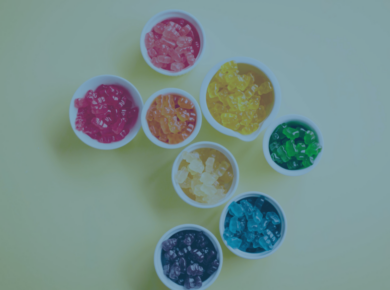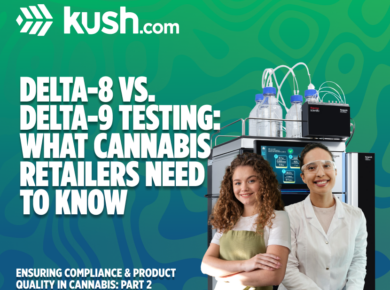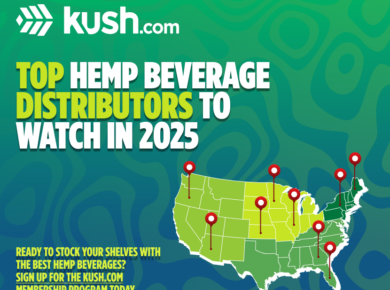Purchasing hemp and cannabis seeds is an exciting part of any planting endeavor. Cannabis and hemp is no exception, but it can sometimes be difficult to know which seeds to purchase.

When picking cannabis or hemp seeds, some important things to consider are:
- Is the seller reputable?
- What type of grow are you planning?
- How much room do you have to sow your seeds?
- Are you planning to use natural sunlight or lamps?
- Are you planning on growing indoor, outdoor or in a greenhouse?
- How much water is available?
- What is the quality of the soil you are planting in?
Ultimately, deciding the end product being produced is an empowering and memorable moment for any grower. Regardless of what species you choose there are a few things to take into consideration when purchasing cannabis and hemp seeds.

Reputable Source
The first thing to consider when purchasing cannabis and hemp seeds is how long has the seller been in business?
Maybe the seller is new to the commercial market and has been growing for years. Possibilities like this allow buyers to get in on the ground floor of their first selling season.
Or, the seller has built a reputation. They are trusted by the majority of industry professionals for providing reliable seeds each year, and you know that doing business with them will result in a bountiful harvest.
No matter how long they have been in business, ensure that they are a reputable dealer. Be sure to do your research. Don’t be afraid to ask specific questions.
Shop Cannabis and Hemp Seeds Now at Kush Marketplace >>
Here are some important questions to ask any seller before buying cannabis and hemp seeds:
- How were the seeds harvested? Is it conventional or organic?
- Do they breed their seeds in house?
- When were the seeds harvested?
- Does the seller have any customer reviews, referrals through blogs, reputable sites, or message boards?
- Where are they located?
Location matters. Not only for shipping cost, but location is also critical because certain areas impose strict regulations on farmers.
Regulations limit certain chemicals from being used, which is better for your seeds, your clients, and the planet. Although these regulations are good overall, sellers unfamiliar with local restrictions may not understand your needs. Remain mindful and remember to reach out to the seller before you buy. Ask any unanswered questions you have on specifics prior to purchase.
Type/Species
The next question every growers should ask is, what is the end goal of planting this crop?
Would you like to extract CBD or THC? Are you using stalks for biomass fibre? Maybe you want to harvest seeds for culinary endeavors or for resale.
Each of these unique goals require a specific species of cannabis bred for that goal.
For example, almost all industrial hemp seeds produce very little THC. If extracting THC for recreation is your goal, it is going to be almost impossible to do this with industrial hemp seeds.
Vice versa some THC dense strains of cannabis produce shorter & thinner stalks. This means that they would not be sought after for harvest hemp biomass fibre.
Be sure to do your research to confirm that the seeds you are purchasing will meet you end goals. Each seller should provide the specifics for each package of seeds they offer. If you are buying seeds through Kush, make sure to ask your seller what they have used these seeds for in the past.
[PRO TIP] Purchase high-quality cannabis and hemp seeds from verified sellers now >>

Location
Next, you’ll want to consider how much room you have available to sow your seeds.
I prefer to map out my planting plans by drawing a blueprint of where I am going to plant certain seeds. This process allows not only a physical reference for pre-planting prep, but a physical reminder of where each plant is located for the coming months.
This helps tremendously at the time of harvest. It allows everything to be documented by number or name. This ensures the exact location of each plant, no matter how many other things are on the harvest to-do list.
Natural Sunlight or Lamps?
If you are planting outside, select a space with full-sun.
If your plants are going indoors, ensure that your “grow room” has ample space for the plants to spread out. You also want to make sure you have a secure place to hang or mount your UV lamps.
You’ll also want to make sure that you have the ability to have full darkness as well. UV light plays a primary role in the bloom cycle for cannabis plants. When it comes time to set the plants in motion to bloom, any other light source can negatively affect their transition. The ability to have 100% darkness in the grow room is recommended.
[PRO TIP] If you must work in the grow room during the “night-cycle,” light from a green bulb emits a frequency that does not affect the plants negatively and allows for adequate visibility.
Shop Cannabis and Hemp Seeds Now at Kush Marketplace >>
Indoor, Outdoor or Greenhouse?
While lighting is an important factor, there are many other things to consider when choosing seeds. Some of the things to consider when growing indoor cannabis or hemp are:
- Water distribution
- Pest control
- Temperature
- Humidity levels
- Potting soil rejuvenation
Growing outdoors the plants grow in their natural environment. Be sure to check the following:
- Soil pH
- Mineral levels
- Adequate drainage/irrigation
- Pest control
Pest control is more difficult when growing outdoors. Certain natural remedies can be used in the place of harsh chemicals to keep insects at bay.
Greenhouse grows split the difference between both mediums. Greenhouses allow for a more energy efficient environment, humidity control, natural light cycles, ease of harvest, pest protection, and, if large enough, could allow for a post harvest dry facility as well.
Water Availability
Cannabis and Hemp are drought tolerant plants once they get to a certain level of maturity.
Water should be easily accessible for a seamless growing season, but you won’t need to worry if you live in a drier climate.
Depending on the size of your crops you may need a simple watering pail from your local hardware store, or a fully functional mobile irrigation system.
Be mindful about the cost of water in your area as well as accessibility to the source.
Soil Health
Cannabis/Hemp prefers soil with a pH of 6.5-7 and adequate amounts of phosphorus and nitrogen. This can be achieved a number of ways, but here are a couple that I recommend.
Planting common buckwheat as a cover crop before you sow your first seeds will enrich the soil with phosphorus.
Alfalfa hay planted as a cover crop will increase the levels of nitrogen, naturally.
To benefit from a cover crop, you’ll need to do a few things.
First, plant the crop as the packaging suggests. Allow the crop to reach maturity, and before it “bolts” or begins to seed.
When ready, cut it or till it and allow it to break down into the soil. This will give you the full benefit of using each plant respectively for the health and rejuvenation of the soil.
Mineral supplements can be purchased from retailers, should you want to forgo growing a cover crop.
Premixed potting soil is another solution. Potting soil can be constructed by your local lawn care or landscaping company. Premade mixtures are also available from companies such as Kellogs for raised beds or potting applications.





